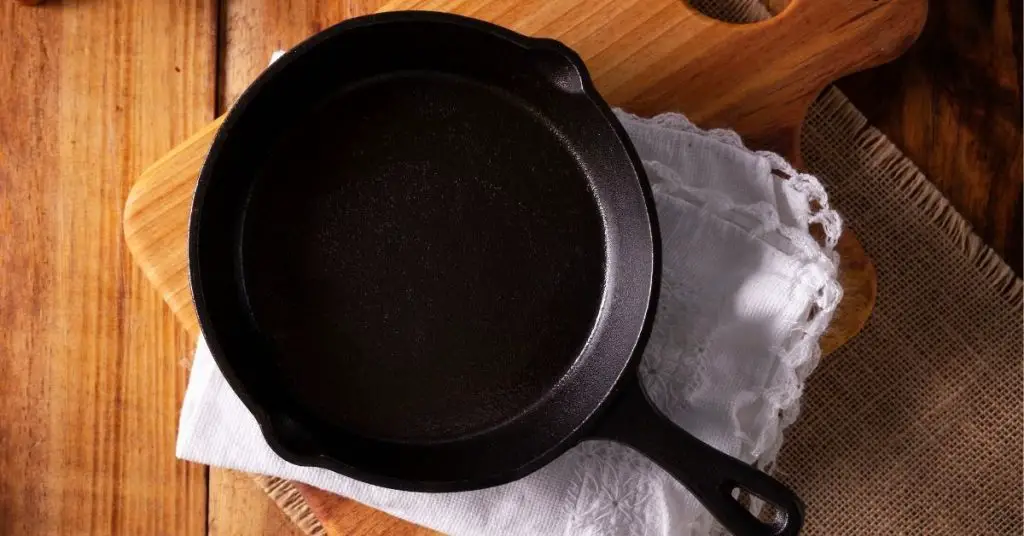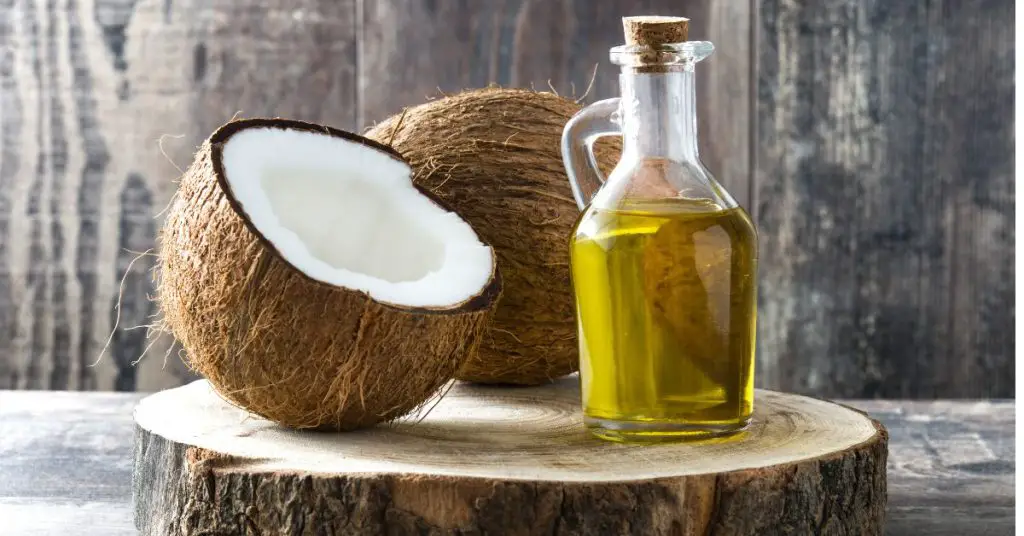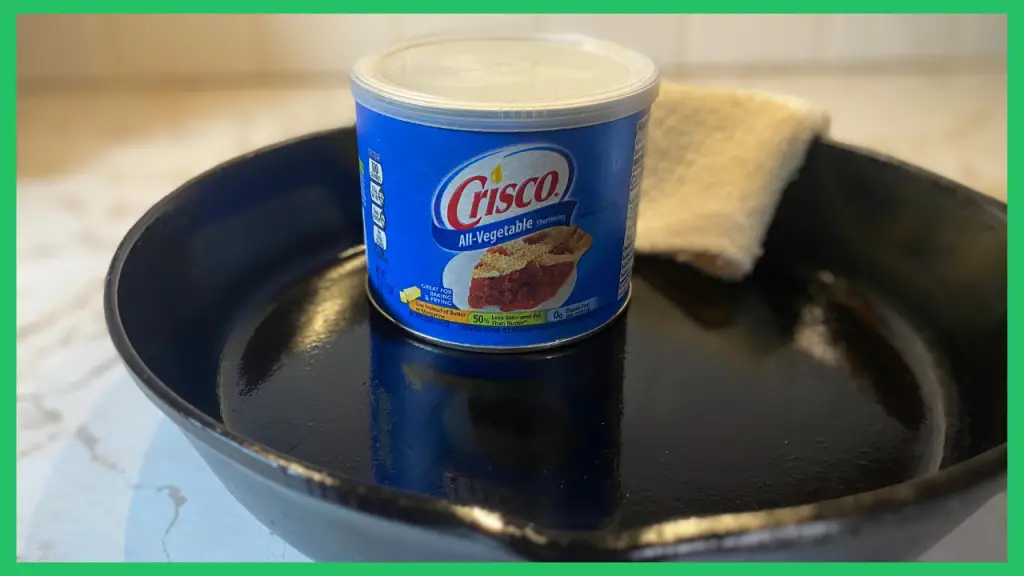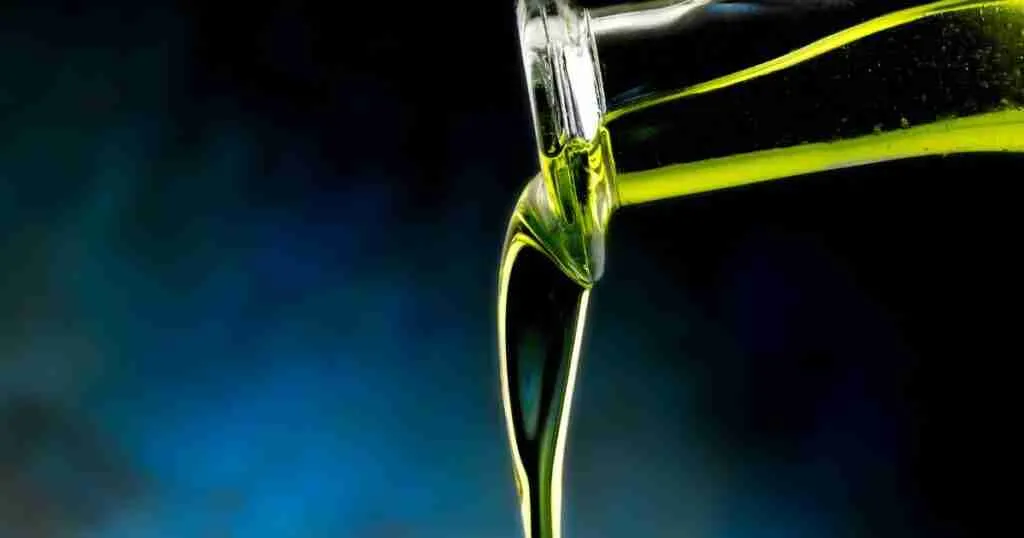Olive oil, a staple in many kitchens, is celebrated for its health benefits, rich flavor, and versatility in cooking. However, understanding olive oil’s smoke point becomes crucial when it comes to high-heat cooking. In this guide, we’ll dive deep into the olive oil smoke point, its significance, and how it compares to other oils. And, is it good for seasoning cast iron?
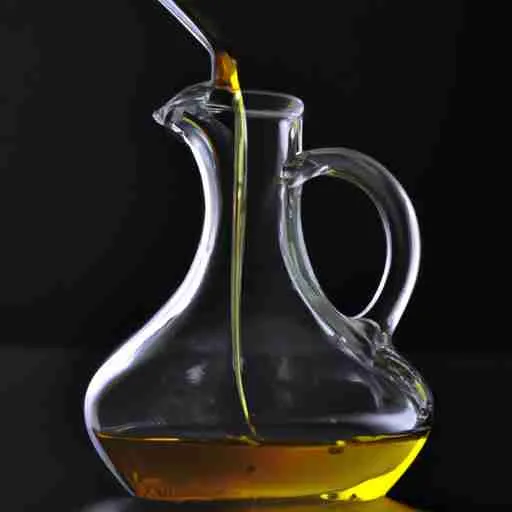
Table of Contents
Understanding the Smoke Point
The smoke point of an oil refers to the temperature at which it begins to smoke when heated. Beyond this point, the oil starts to break down, releasing free radicals and harmful compounds. Not only can this be detrimental to health, but it can also impart a bitter taste to the food.
Types of Olive Oil and Their Smoke Points
Not all olive oils are the same.
Extra Virgin Olive Oil (EVOO)
EVOO is the highest quality olive oil, made from the first cold pressing of olives. It retains the most nutrients and has a distinct flavor. However, its smoke point is relatively low, ranging from 320°F to 375°F, making it suitable for low to medium-heat cooking.
Virgin Olive Oil
Slightly inferior to EVOO, virgin olive oil has a slightly higher smoke point, making it a better option for medium-heat cooking.
Refined Olive Oil
Refined olive oil undergoes processing to remove impurities, resulting in a higher smoke point suitable for frying and sautéing.
Comparing Olive Oil to Other Oils
When it comes to cooking, it’s essential to understand how olive oil stacks up against other oils in terms of smoke point:
Oil TypeSmoke Point
EVOO 320°F – 375°F
Coconut Oil 350°F
Canola Oil 400°F
Grapeseed Oil 420°F
The Science Behind Smoke Points
When oils are heated, they undergo various chemical reactions. The fatty acids break down, and the oil reaches its smoke point as the temperature rises. Beyond this, harmful compounds, including acrolein, are released, which can harm health.
How to Choose the Right Olive Oil for Cooking
When selecting olive oil for cooking:
- Determine the Cooking Method: For frying or sautéing, opt for refined olive oil. For salads or drizzling, EVOO is the best choice.
- Check the Label: Ensure the oil is fresh by checking the harvest date.
- Taste Test: High-quality olive oil should have a fruity taste with a peppery kick.
Olive Oil Smoke Point And Cast Iron Seasoning
Can You Season Cast Iron with Olive Oil? Seasoning a cast iron skillet or pan is essential to maintaining its non-stick surface, preventing rusting, and enhancing longevity.
While various oils and fats are used for seasoning, olive oil is a popular choice for many. Let’s look into the specifics of seasoning cast iron with olive oil.
Benefits of Using Olive Oil for Seasoning
Olive oil, especially extra virgin olive oil (EVOO), is rich in monounsaturated fats, which can create a durable seasoning layer on the cast iron surface. Here are some benefits:
- Natural and Non-toxic: Unlike commercial seasoning sprays, olive oil is natural and free from harmful chemicals.
- Enhanced Flavor: Seasoning with olive oil can impart a mild, pleasant flavor to the food cooked in the cast iron.
- Easy Availability: Olive oil is a staple in many kitchens, making it a convenient choice for seasoning.
Precautions When Seasoning with Olive Oil
While olive oil offers several benefits for seasoning, there are certain precautions to keep in mind:
- Smoke Point: As discussed earlier, EVOO has a smoke point ranging from 350°F to 410°F. When seasoning, ensure the oven temperature doesn’t exceed this range to prevent the oil from smoking and breaking down.
- Thin Layers: When applying olive oil to the cast iron, use a thin layer. Excessive oil can lead to a sticky surface.
- Regular Maintenance: After seasoning with olive oil, it’s essential to maintain the cast iron by cleaning it properly after each use and re-seasoning as needed.
Frequently Asked Questions
Why is the smoke point of olive oil a topic of controversy?
The smoke point of olive oil has been a subject of debate in the culinary and nutrition world. Many believe that heating olive oil diminishes its health benefits and releases harmful compounds. However, cooking with olive oil, including EVOO, is safe, and the smoke point is only one factor determining how an oil reacts to heat.
What happens when olive oil smokes?
When olive oil reaches its smoke point, it starts releasing greyish-blue smoke. This indicates the breakdown of the oil, leading to the release of unhealthy compounds like pro-inflammatory free radicals. Excessive smoking can also cause the oil’s nutrients to degrade and impart unwanted flavors to the food.
Is it safe to cook with extra virgin olive oil (EVOO)?
Yes, it’s safe to cook with EVOO. Its smoke point ranges from 350⁰F to 410⁰F, covering most cooking methods. This means you can sauté, bake, stir-fry, and even deep-fry with EVOO without releasing smoke.
How does the smoke point of olive oil compare to other oils?
EVOO has a smoke point ranging from 350⁰F to 410⁰F. Regular or light olive oil has a higher smoke point of around 470⁰F. Other oils, like avocado oil and coconut oil, have varying smoke points, with refined versions generally having higher smoke points than unrefined ones.
Why is smoke point not the only factor to consider when choosing cooking oils?
While the smoke point is essential, it shouldn’t be the sole criterion for selecting cooking oils. Some oils with high smoke points, like safflower oil and sunflower oil, have low oxidative stability, making them prone to producing harmful byproducts when heated. Despite having a lower smoke point than some oils, EVOO is a better choice due to its heat-stable monounsaturated fats and protective polyphenol compounds.
What should I do if my olive oil starts to smoke excessively while cooking?
If olive oil starts smoking excessively, it’s best to start fresh. Smoking indicates the breakdown of fat molecules, producing harmful compounds.
Can I use olive oil to season my cast iron skillet?
Yes, you can use olive oil to season your cast iron skillet. Olive oil, especially extra virgin olive oil (EVOO), can create a durable seasoning layer on the cast iron surface. However, it’s essential to be aware of its smoke point and use it correctly to achieve the best results.
Are there any alternatives to olive oil for seasoning cast iron?
Yes, there are several alternatives to olive oil for seasoning cast iron. Lodge, a renowned cast iron manufacturer, recommends vegetable oil, melted shortening, or canola oil for seasoning. Lard and other animal-based fats can also be used, but they might go rancid if the cookware is stored for extended periods.
In this comprehensive guide, we went deep into the world of olive oil, particularly its smoke point and its relationship with cast iron seasoning. We’ve explored the significance of the smoke point, the different types of olive oil, and how they fare when exposed to heat.
The guide also highlighted the benefits and precautions of using olive oil for seasoning
While olive oil is a versatile and healthy choice for many culinary applications, understanding its properties, especially its smoke point, is crucial for optimal cooking and seasoning results.
Thank you for joining us on this enlightening olive oil and cast iron journey. We hope you found this information valuable and insightful!
